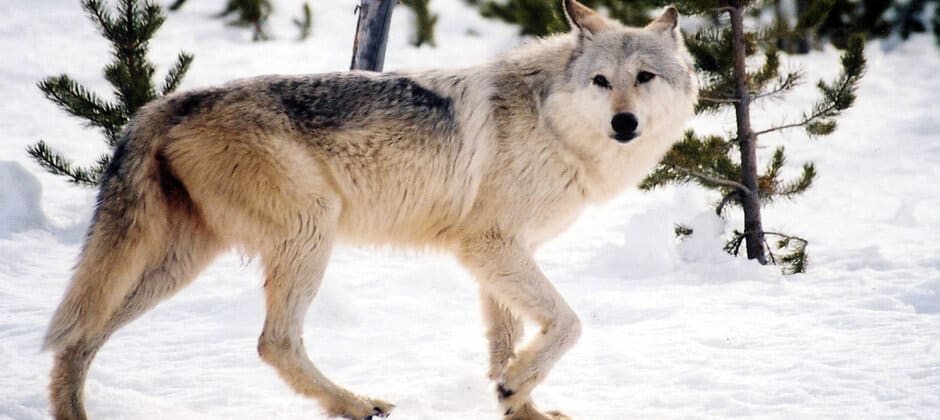Share this article
Wisconsin to hold February wolf harvest season
The Wisconsin Department of Natural Resources has opened a last-minute hunting and trapping season for gray wolves.
The season will run from Feb. 22 to 28, 2021. During that week, as many as 4,000 permit holders will have the opportunity to hunt and trap gray wolves (Canis lupis), unless a maximum harvest quota of 200 animals is reached.
In January, the U.S. Fish and Wildlife Service delisted gray wolves in the contiguous United States from the Endangered Species Act, returning management of wolves to state agencies and tribes. Wisconsin state law requires the state DNR to hold a wolf hunting and trapping season between November and February each year if wolves are not listed under the federal ESA or the state endangered species list.
The DNR announced last December that it was planning a wolf harvest season to begin in Nov. 2021, following the federal delisting of the species. The agency was not planning to open a wolf harvest for January and February, arguing that doing so would not allow enough time to develop science-based harvest quotas or to engage the public and tribal partners in developing specific parameters for the harvest.
One group of tribal partners the DNR must engage, the Ojibwe tribes, generally considers wolves sacred and opposes wolf harvest in Wisconsin. In accordance with federal treaties and court decisions, the DNR must engage in government-to-government consultations with federally recognized Ojibwe tribes when setting harvest quotas for wolves and other species.
Earlier this month, Hunter Nation Inc., a Kansas-based hunter advocacy group, sued the DNR and sought an immediate start to the wolf season. The group expressed concerns that the new presidential administration could restore ESA protections to wolves before the November harvest season takes place, noting that “there is a substantial possibility that Wisconsinites’ time to hunt wolves is limited.” On Feb. 11, the Wisconsin Circuit Court ordered the DNR to hold a wolf harvest season before the end of the month.
The DNR filed a motion to put the court order on hold and appeal the decision, but moved forward with establishing the harvest season for the last week of the month. The agency continues to plan a wolf harvest season for November and is developing a 10-year plan to guide wolf management decisions beginning in 2022.
Wolf populations in Wisconsin continue to rise. The DNR’s objective for the February hunt is to “allow for a sustainable harvest that neither increases nor decreases the state’s wolf population,” according to a press release.
Other lawsuits at the federal level seek to challenge the delisting of wolves from the ESA, and the status of wolves under the act may receive review as a result of recent presidential executive orders
Read TWS’ Position Statements on Wolf Restoration and Management in the Contiguous United States, Threatened and Endangered Species in the U.S., and The U.S. Endangered Species Act.
Header Image: A state court has ordered the Wisconsin Department of Natural Resources to open a wolf harvest season before the end of February. Credit: MacNeil Lyons/NPS








